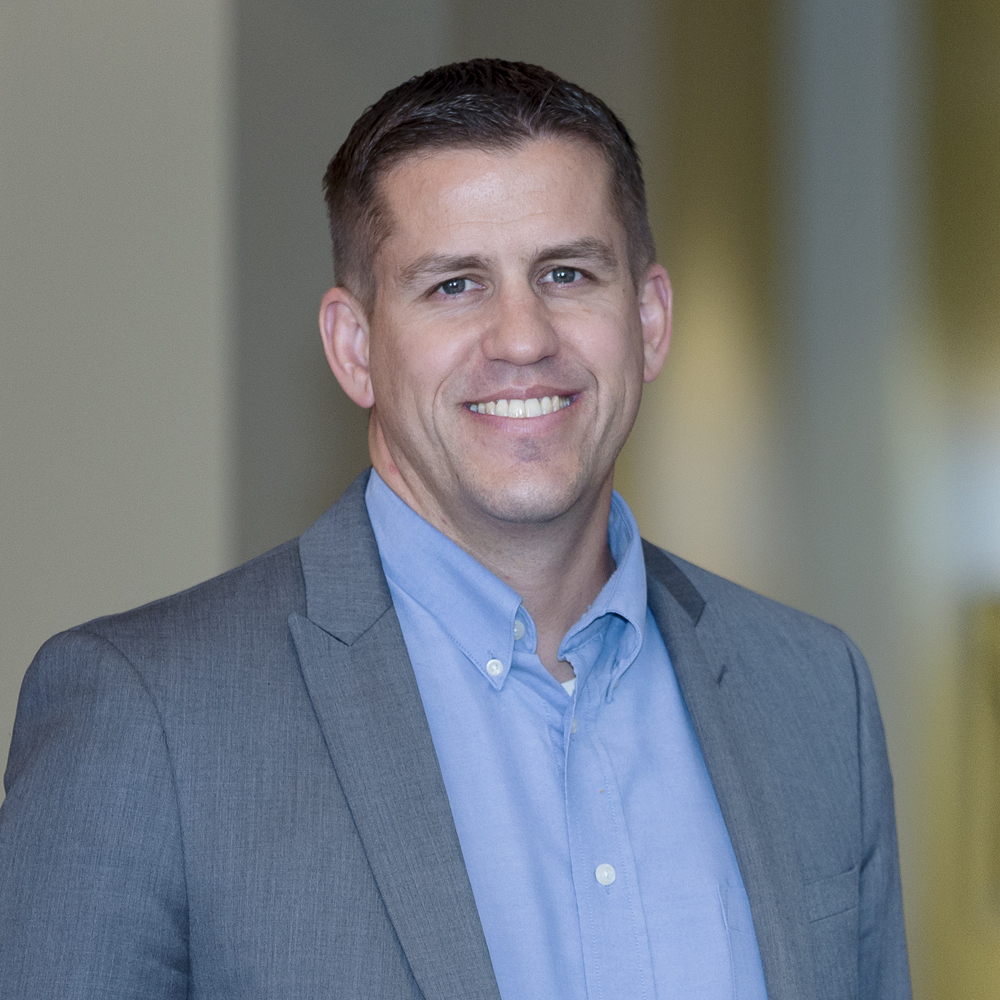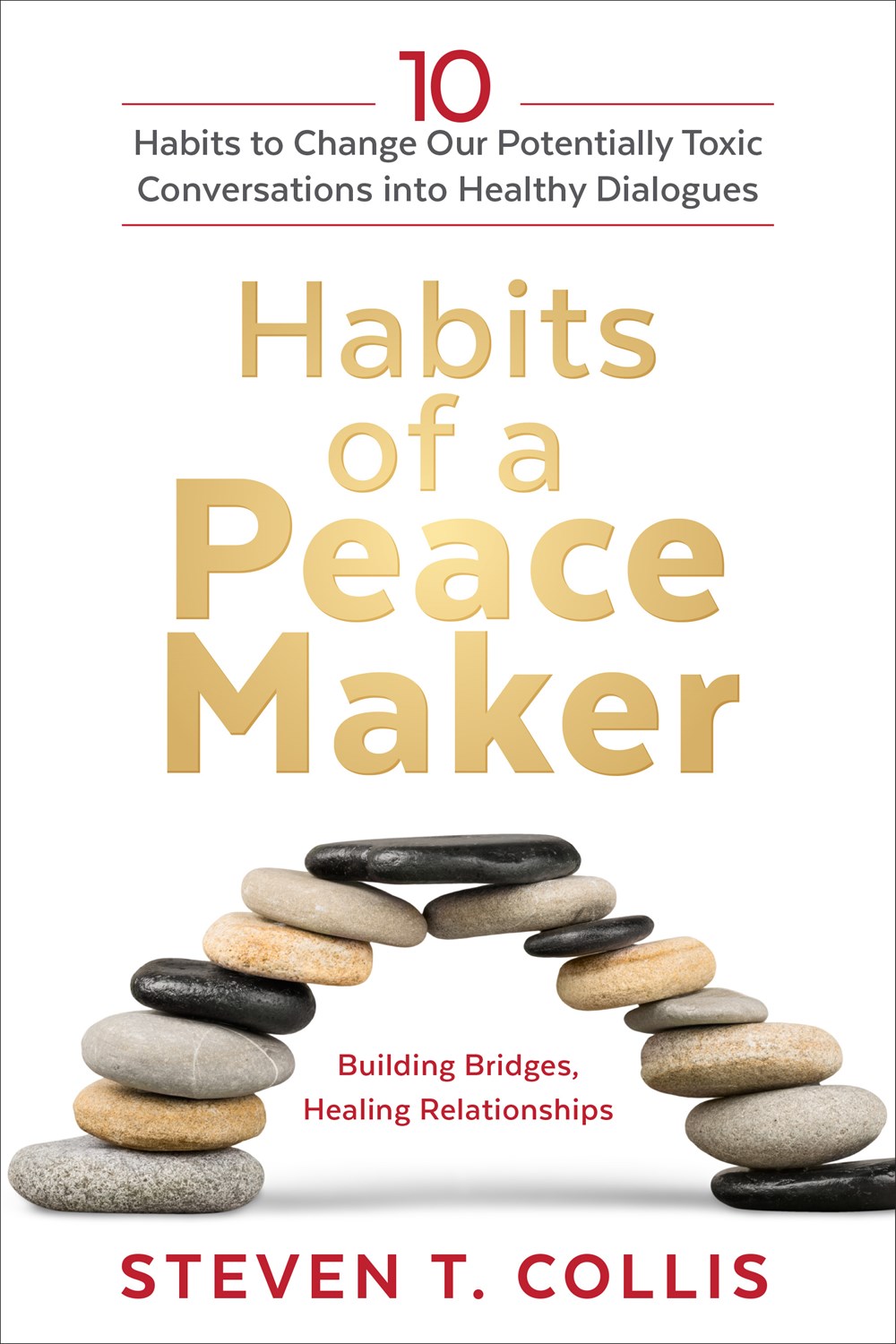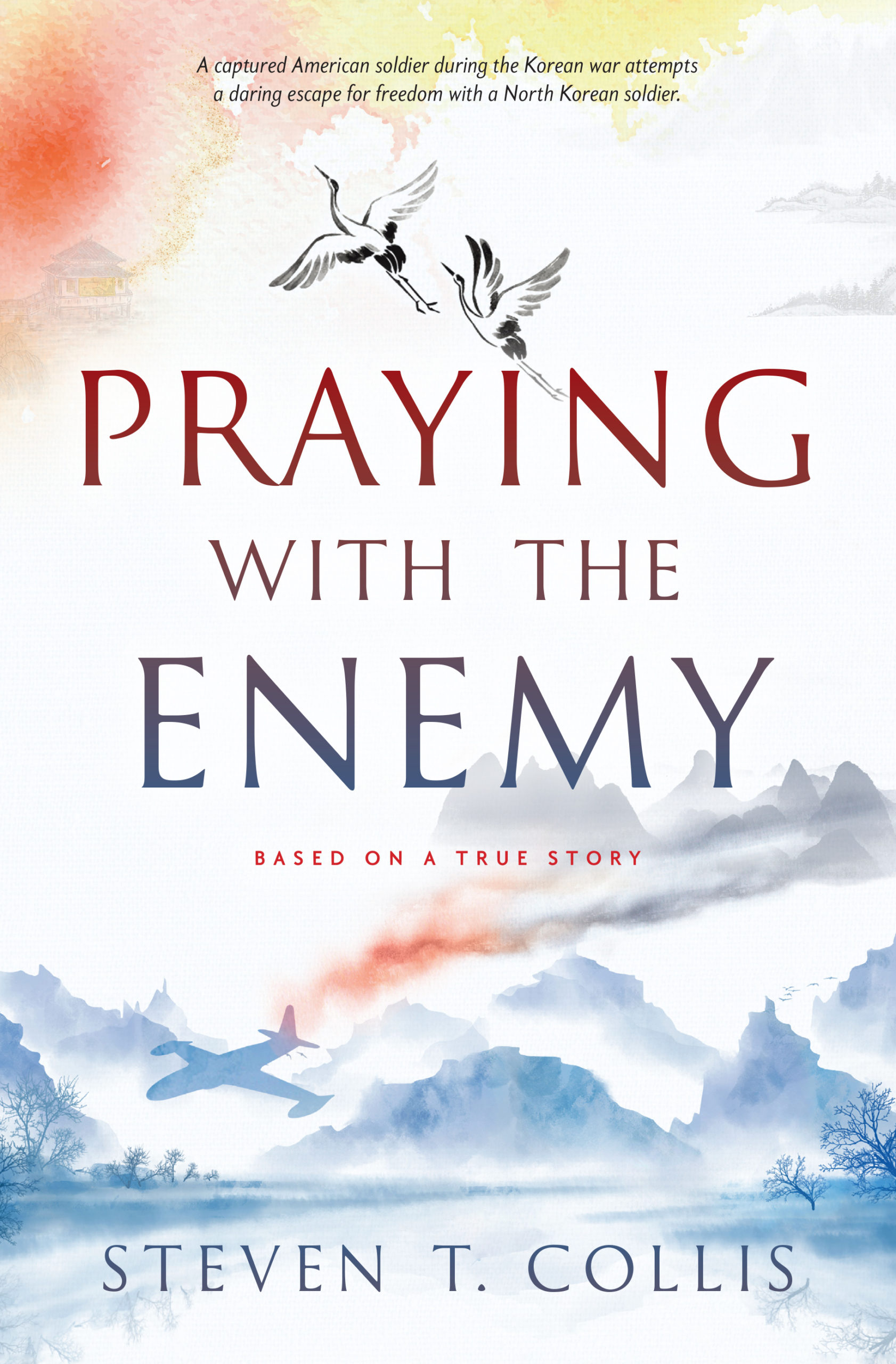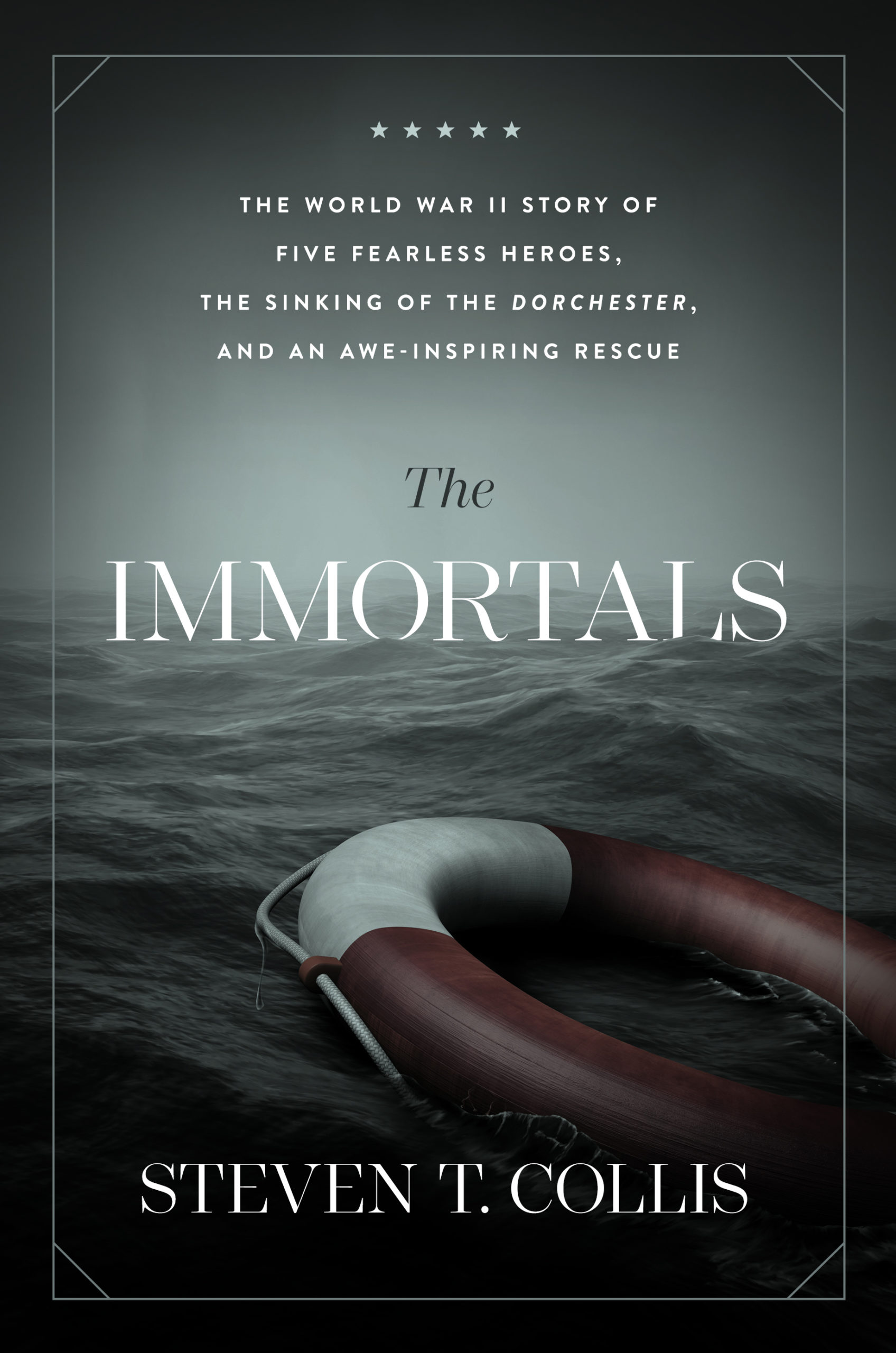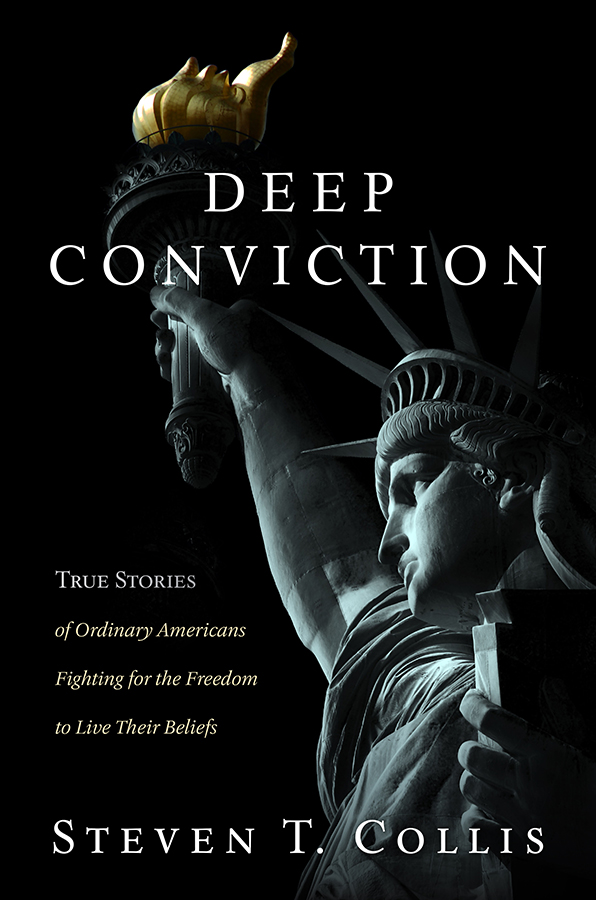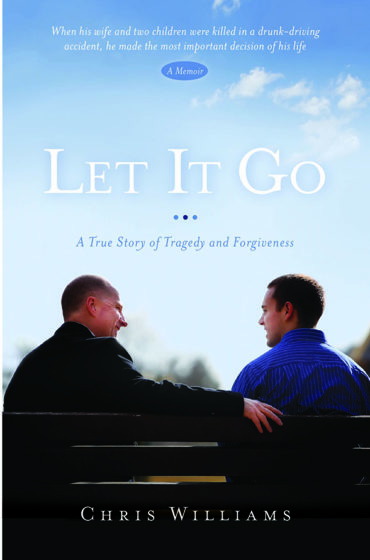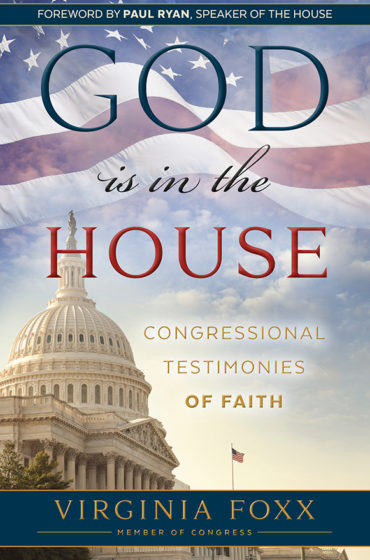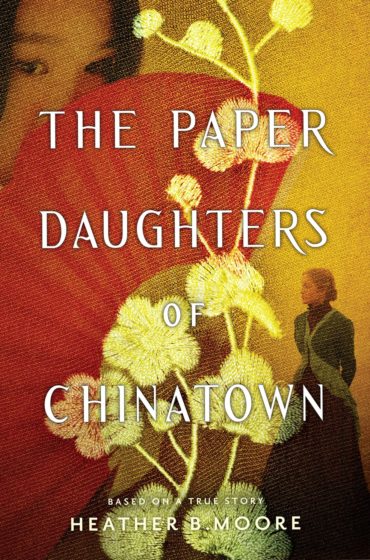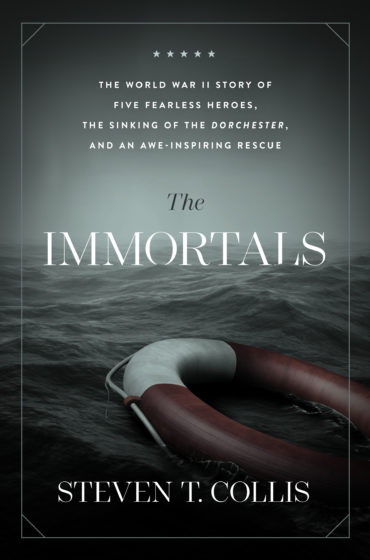-
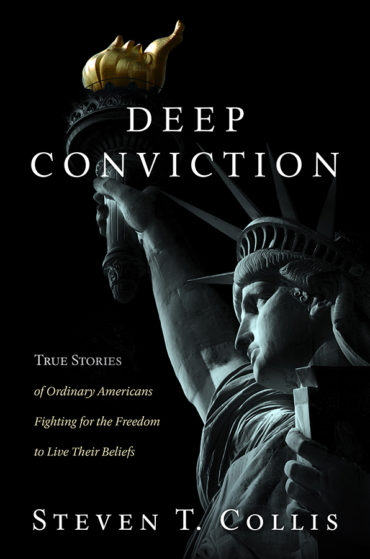
Steven T. Collis
Deep Conviction
by: Steven T. CollisDeep Conviction features four ordinary Americans who put their reputations and livelihoods at risk as they fought to protect their first amendment right to live their personal beliefs. Though these individuals couldn’t be more different, they share a similar conviction and determination, and the principles of religious freedom apply equally to all of them.
In 1813, a Catholic priest in New York City faced prison after a grand jury subpoenaed him for refusing to divulge the identity of a jewelry thief who admitted to the crime during the sacrament of confession.
In 1959, an atheist in Maryland was forced to choose between his job and his beliefs when the state required him, as part of the hiring process, to sign an oath that said he believed in God. The United States Supreme Court would decide his fate.
In 1989, a Klamath Indian man walked into the highest court of our nation to fight for the right to practice the central sacrament of the Native American Church after the state of Oregon had declared it illegal.
And, finally, in 2017, a Christian baker and a gay couple took their cases to the United States Supreme Court after the baker declined to create a custom wedding cake to celebrate the couple’s same-sex marriage, fearing it would violate his duty to God.
Chosen for their universality and for the broad principles they represent, these true stories reflect the diversity of beliefs in the United States, the conflicts between religious freedom and other interests, the perils individuals face when their right to live their beliefs is threatened, and the genius of America’s promise of religious liberty for all.
- The legal fight for freedom of religion is explored in these four deeply personal true stories of ordinary individuals-a Catholic, an atheist, a Peyotist, and a Christian-who tested or challenged the Supreme Court to defend their beliefs. Each of the stories features a citizen who would not back down when faced with discrimination, intolerance, and persecution and who sought justice via the First Amendment of the Constitution.
- One of the few titles on religious liberty to have a balanced approach to all sides of the topic using several cases. It’s told in a literary nonfiction storytelling approach to make the topic accessible and engaging for readers.
- Each of the four stories explores several aspects of the meaning of religious liberty such as:
- An atheist who in 1959 pushed his attempt to become a Maryland notary public all the way to the Supreme Court because the state required him to sign an oath that said he believed in God.
- In 2017 in Denver, a Christian baker’s beliefs and actions came under scrutiny in a case brought to the Supreme Court after he refused service to a gay couple who wanted to purchase a custom wedding cake.
- In 1989 a Klamath Native American man in Oregon fought off government attempts to suppress the exercise of his religious beliefs by criminalizing the use of peyote.
- 1813, in New York City, a Catholic priest faced prison after a grand jury subpoenaed him for refusing to divulge the identity of a criminal who admitted his guilt during the sacrament of confession.
- Illustrates that religious freedom, when properly applied, keeps religious groups from using the powerful hand of government to force its beliefs onto any other group, thus avoiding the violence and conflict that might arise if religious groups were to vie for control of the government. It protects atheists from religious oppression from the government, just as it prevents the government from adopting atheism as the state religion. True religious freedom exists when we are able to persuade one another through the power of our ideas, beliefs, and examples, not through the might of the state.
- Written by an attorney who specializes in religious freedom cases, this book is meticulously researched and extensively uses primary source documents to give a full picture of the individuals depicted in the cases, including letters, journal entries, video and court transcripts, multiple interviews with living witnesses, on-site visits, and photographs.
- Includes the 2018 Masterpiece Cakeshop case brought before the Supreme Court on religious liberty grounds, centering on the right of a religious Christian baker to refuse service to a gay couple who wanted to purchase a custom wedding cake. Features an interview with the principles in the case: the cake artist, Jack Phillips, and his attorneys, the attorneys for the state of Colorado, and the attorneys for the gay couple, David Mullins and Charlie Craig.
REVIEWS
“Religious freedom is a pillar of the First Amendment of the Constitution, and yet it is a right that is often over-simplified, misconstrued, and contested. Collis, a professor of law and practicing lawyer specializing in religious liberty, tackles this difficult topic through four different and instructive examples from different eras in American history. While the situations are varied, each reveals the role that power plays in applying the law and that the nature and dynamics of social mores and political clout change over time. Collis does a superb job of presenting these cases clearly and thoroughly and without strong bias, focusing on the letter of the law and its implications. Truly an accessible and fascinating narrative for all readers interested in how diverse battles over First Amendment rights and religious freedom have shaped people’s lives and the nation at large.”
-Booklist
“Collis selects four very different case studies to illustrate the challenges of protecting religious freedom. The author begins in 1812 with a Catholic priest who is asked to reveal information from a private confession. In 1959, an atheist in Maryland won a legal battle to become a notary without having to declare a belief in God. A more complex case was heard in 1990 involving a member of the Klamath tribe and his appeal to freely practice his beliefs (Oregon v. Smith). The Supreme Court held that the state could prohibit certain religious practices as long as it wasn’t targeting any specific religion. The final case outlined is the recent and highly publicized Masterpiece Cakeshop v. Colorado Civil Rights Commission. The Court, in a 7–2 vote, decided that the Commission’s hostility to religion invalidated the lower court’s ruling. Collis is an effective storyteller…his narrative… benefits from extensive research and generous use of court transcripts and interviews. Readers interested in religious liberty will find this work to be an accessible exploration of a much-disputed area of constitutional law.”
-Library Journal
“Collis takes complex legal theories and disputes and brings them to life in a way that will make them engaging for readers with no legal background. The stories in this book illustrate the significant human toll that state regulation of religious exercise can exact, but they also show the interests of government and the legitimate concerns some may have with allowing conscientious objectors an exception to laws that apply to most others. Even-handed and thoughtful, yet paced like a good work of literature, Deep Conviction will leave readers with a deeper understanding of the relationship between church and state. Through the eyes of people affected on an intimate level, the book illuminates how religious liberty law ended up where it is today. The stories—riveting and painstakingly researched—will allow readers to be thoughtful about where the law should go, and they will help readers understand the differing viewpoints on these most important of issues. A timely and important contribution.”
-Douglas Laycock, Professor of Law and Religious Studies, University of Virginia Law School and author of a five-volume collection: Religious Liberty and numerous scholarly articles and has argued several cases before the U.S. Supreme Court
ISBN: 978-1-62972-553-6
Publisher: Shadow Mountain
Publish Date: 2019
Page Count: 352






